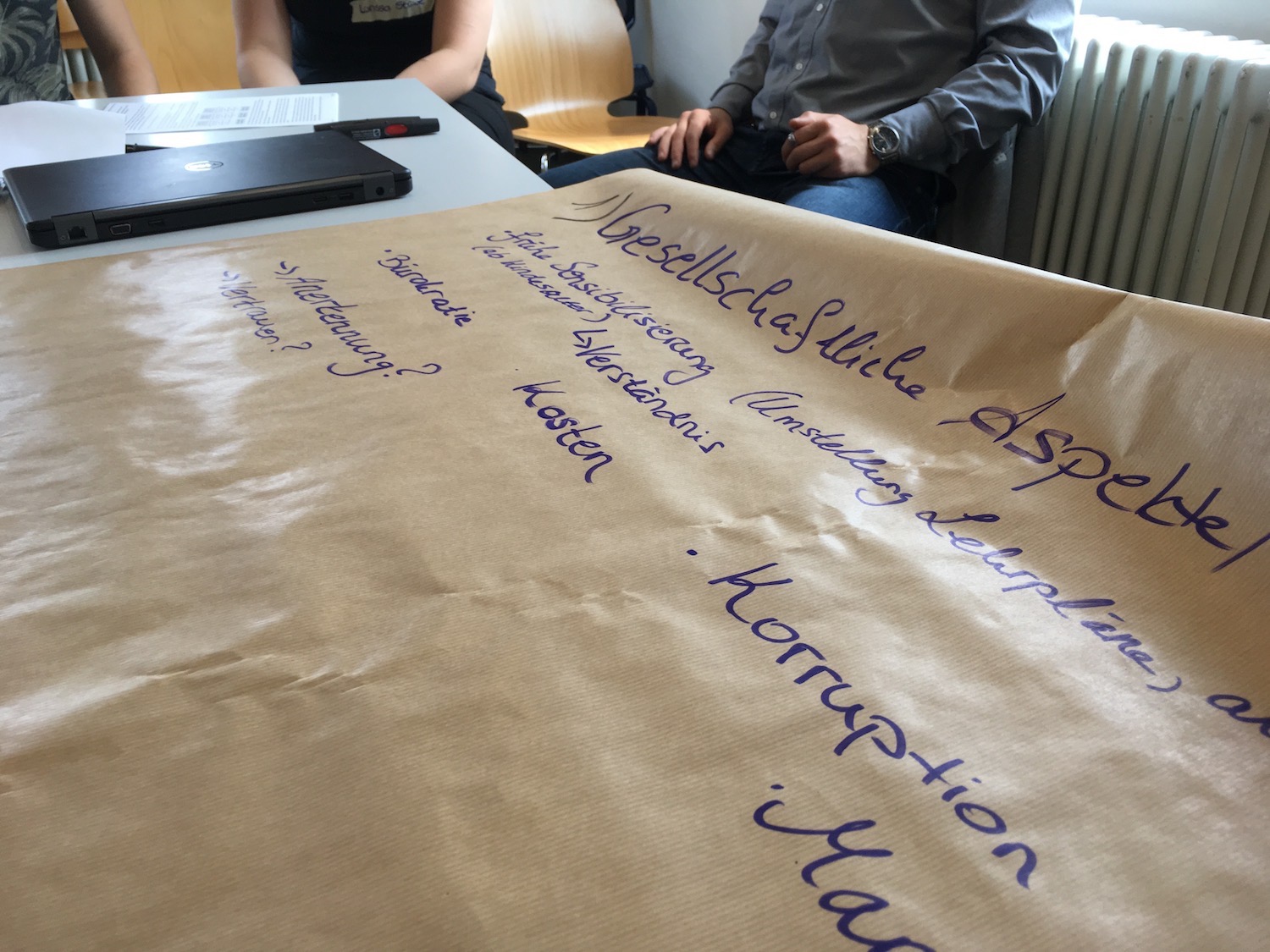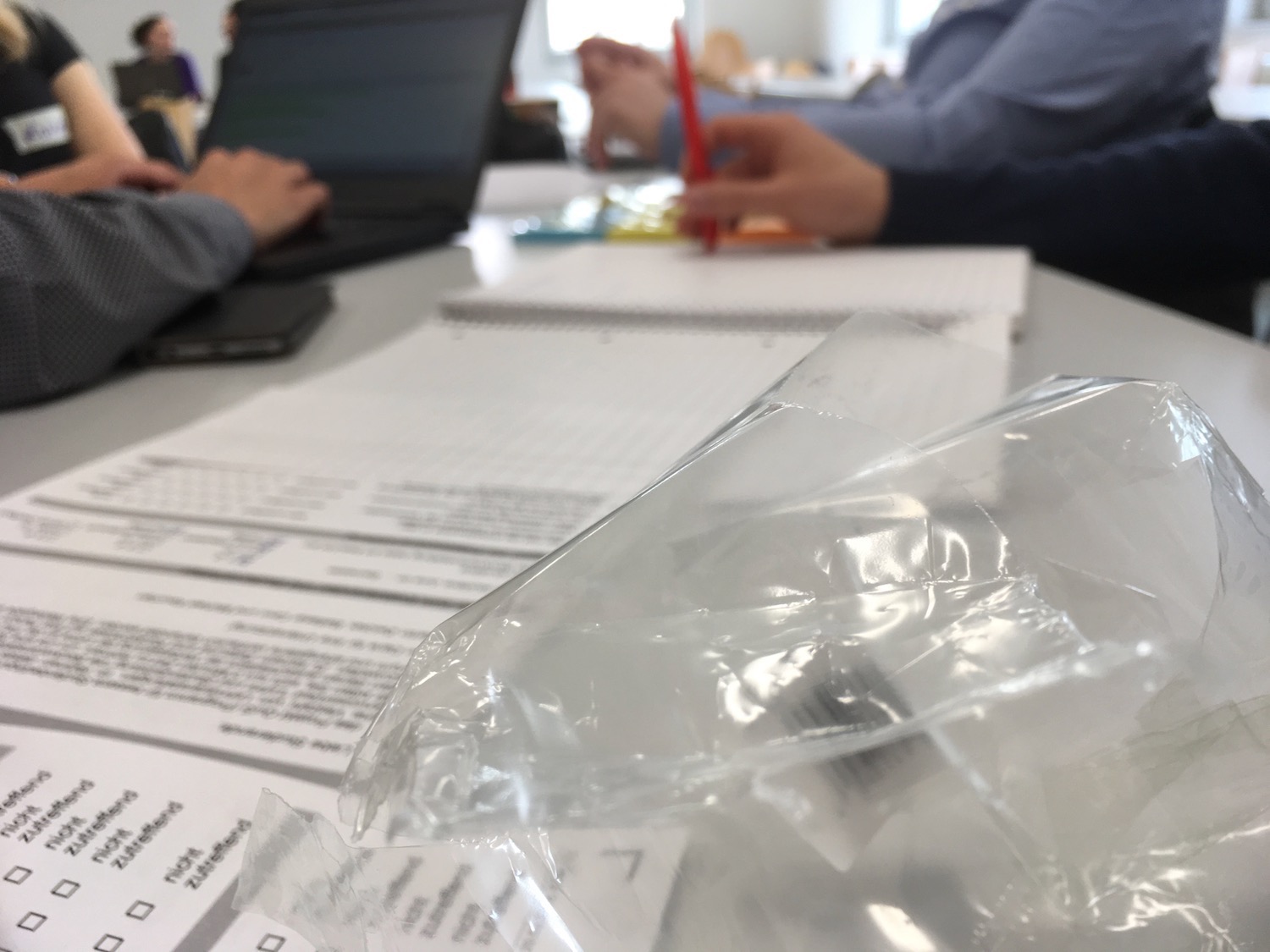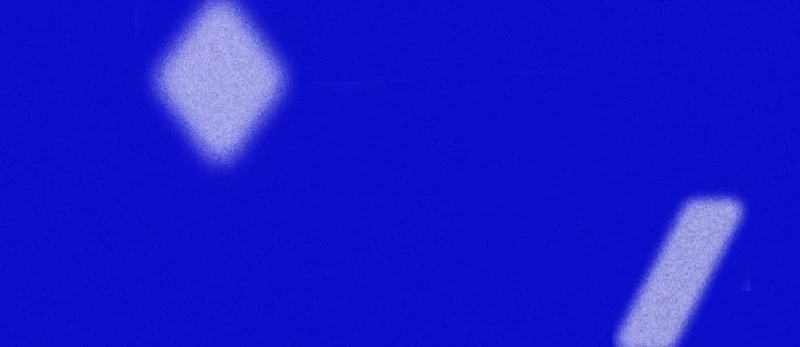The Legal Tech Laboratory is a format in which young lawyers experiment with modern working methods and approach technological change “under laboratory conditions”. At the same time, they can help shape the future of legal education by making suggestions for concrete training formats and then testing them prototypically.
The basic idea:
Vocational education needs adaptation and must be adapted to technical change and collaborative work. Instead of talking about those affected—in this case next generation lawyers—further development should take place with them. The Legal Tech Laboratory makes it possible for them to act on their own—without paternalistic guidelines.
The approach:
Having room to act is one necessary factor. However, this often requires setting a framework. Modern working methods should be experienced practically—this can happen almost casually. For while the participants are free to set content, the event format provides a structure and approaches to develop the outline of the new education curriculum.

The concrete format…
…is a mixture of group work and traditional presentations, predominantly short impulses to create the basis for further work. While working in groups, the participants worked out individual thematic complexes on the basis of theses. In addition, elements inspired by Design Thinking (but not a full process) as well as classical brainstorming and discussions we utilized. In our example, the prototype test was only possible in a slightly weakened form in the form of a role play in which the groups had to defend their solutions.
In the end,
Almost 20 satisfied students took part in the two session days. We noticed that the proposals had not yet been worked out down to the last detail, but that they were substantiated in terms of content and amazingly compatible, sometimes complementary or overlapping. In this respect, the needs seem to be clearer than one might think.
Impulses…
…have been contributed by the following people, further we used pre-existing videos:
- Daniella Domokos, lawyer and journalist, at this time she was just in between the written first exams and the notification of the grades
- Dr. Bernhard Waltl, co-founder of the Liquid Legal Institute
- PD Dr. Martin Fries, Ludwig-Maximilians-Universität München
- Edilson Osorio Jr., founder and CEO of the blockchain company OriginalMy
- Prof. Dr. Axel Adrian, professor at the FAU and notary, who does ample work on theory and philosophy of law and who works on automizing and technologically supporting service processes in law

Taking it further…
The further development of format and topic should also take place beyond the event. With this in mind, we have published the structure of the event and the essential material. My colleagues Dr. Martin Zwickel, Michael Keuchen and I are looking forward to feedback and exchange.

